Return of 2,400 Somali refugees leads to closing of third camp in Ethiopia
The voluntary return of more than 2,400 Somali refugees last week brings to more than 50,000 the number of voluntary repatriations last year and leads to the closing of a third refugee camp in Ethiopia.

ADDIS ABABA, Ethiopia, Jan. 2 (UNHCR) - The repatriation of thousands of Somali refugees from Ethiopia has continued at a steady pace, reflecting a more stable situation in parts of the east African country and leading to the closing of three of eight refugee camps.
Two convoys last week repatriated 2,412 people from Ethiopia's Daror camp to north-west Somalia, bringing the total number of refugees who returned home in 2001 to 50,216. The latest returnees received a nine-month food ration, plastic sheeting and blankets to help them restart their lives.
The Daror complex, which includes health clinics, schools, water systems and generators, and which once hosted 50,000 refugees, will be handed over by UNHCR to the local community.
Earlier last year, Teferiber and Dawarnaji camps were also closed.
Another estimated 67,000 Somalis who fled following the outbreak of widespread civil war a decade ago remain in five other camps in Ethiopia. More than half are expected to return home by June, but some 30,000 others from southern Somalia cannot be repatriated because the security situation in that part of the country remains unstable.
Related news and stories
Thousands of newly arrived Somali refugees in Ethiopia relocated to new settlement
Samira's Story
Drought brings life-threatening food shortages for refugees in Ethiopia
100,000 new Somali refugees arrive in Ethiopia in the past month, UN and partners are calling for urgent funding
UNHCR teams and partners rush assistance to some 100,000 newly arrived Somali refugees in hard-to-reach area of Ethiopia
As the Horn of Africa drought enters a sixth failed rainy season, UNHCR calls for urgent assistance
-
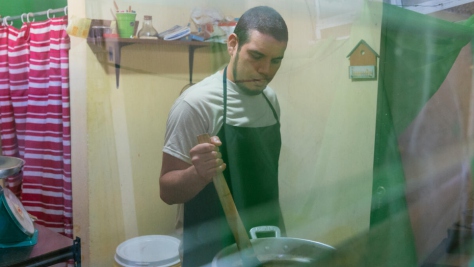
Mental health issues can be both the driver and result of displacement
6 Apr 2022 While medicine shortages have forced some people with mental health issues to flee Venezuela, the stresses of journeys to safety throughout the Americas have pushed others into depression. -

Asif Sultani
Asif Sultani has been supporting UNHCR since 2018. He is now a High Profile Supporter. -
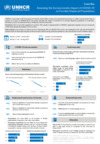
Infographic Costa Rica - Assessing the Socioeconomic Impact of COVID-19 on Forcibly Displaced Populations
5 Apr 2022 UNHCR and Innovations for Poverty Action undertook a survey to find out the socioeconomic impact of COVID-19 on persons of concern to UNHCR in Costa Rica. This publication and accompanying materials present an analysis of the survey findings. -
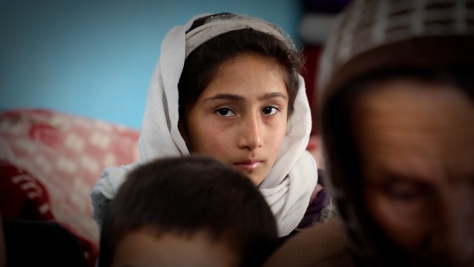
In Afghanistan, a mother's dream to educate her children
5 Apr 2022 -
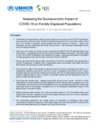
Thematic Brief No. 4: the case of Costa Rica
5 Apr 2022 UNHCR and Innovations for Poverty Action undertook a survey to find out the socioeconomic impact of COVID-19 on persons of concern to UNHCR in Costa Rica. This publication and accompanying materials present an analysis of the survey findings. -
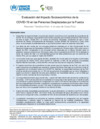
Resumen Temático Núm. 4: el caso de Costa Rica
5 Apr 2022 UNHCR and Innovations for Poverty Action undertook a survey to find out the socioeconomic impact of COVID-19 on persons of concern to UNHCR in Costa Rica. This publication and accompanying materials present an analysis of the survey findings. -

Keynote speech: 22nd Conference of the OSCE Alliance against Trafficking in Persons
4 Apr 2022 -

Brick by brick: Students' policy ideas to help refugees make their way to the real UN
4 Apr 2022 -
Statement to European Parliament on the Ukraine refugee situation and the EU's response
4 Apr 2022 UNHCR's Assistant High Commissioner for Operations, Raouf Mazou, addressed EU lawmakers from the European Parliament's Committee on Development and Committee on Civil Liberties, Justice and Home Affairs.
